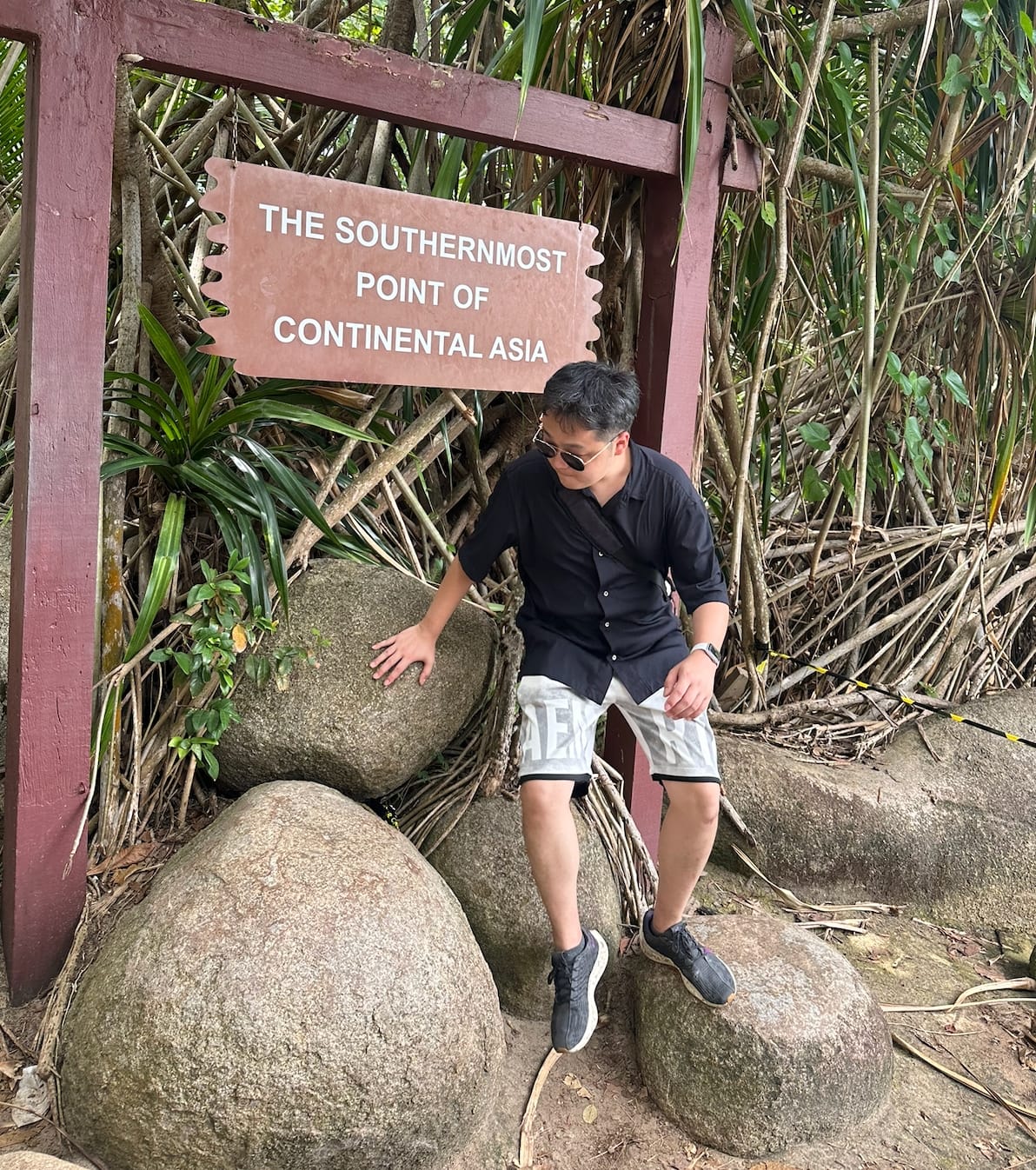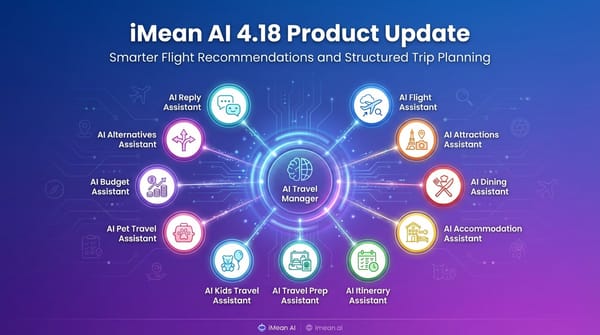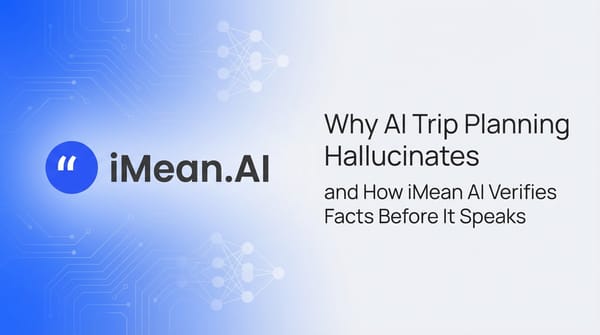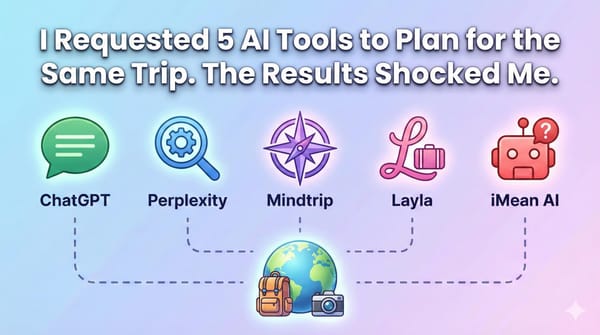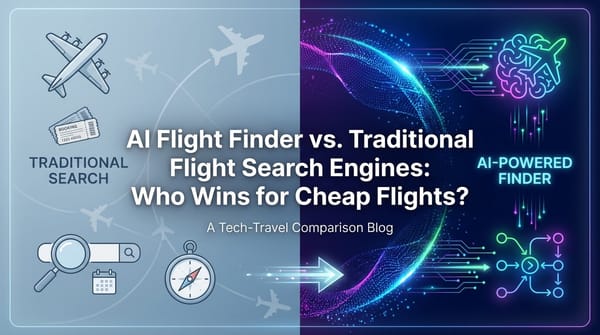In the third season of The White Lotus, viewers are dropped into a lush Thai resort where every detail—from the welcome drink to the poolside gossip—feels intentional. While most travelers won't step into a luxury set with HBO production value, the core appeal of the setting is real: what makes a hotel more than just a bed is how it makes you feel, especially when everything else is unfamiliar.

For first-time international travelers, a hotel is more than a backdrop. It can be the difference between easing into a journey or starting it stressed and disoriented. And increasingly, digital tools are stepping in to help match people with the right first step abroad.
The Pressure of Getting It Right the First Time
When 24-year-old college graduate Jamie booked her first solo trip to Thailand, she did what most new travelers do: search, compare, panic, repeat. Between TikTok's recommendations rooftop pools in Bangkok and Reddit threads warning about tourist scams, she felt overwhelmed. Budget options were everywhere, but reviews were inconsistent. The more she searched, the more questions she had: Would someone be at the front desk if she arrived at midnight? Was that cheap guesthouse really close to public transport, or just “close” in the way travel sites often claim?
That’s when a friend recommended she use iMean, a browser-based AI travel planner that builds itineraries and makes hotel suggestions based not just on cost or proximity but on tone and experience. Instead of plugging in dates and hoping for the best, Jamie started a dialogue: She explained she wanted a quiet, central place with staff who could speak English, ideally with airport transfer or help navigating local transit.
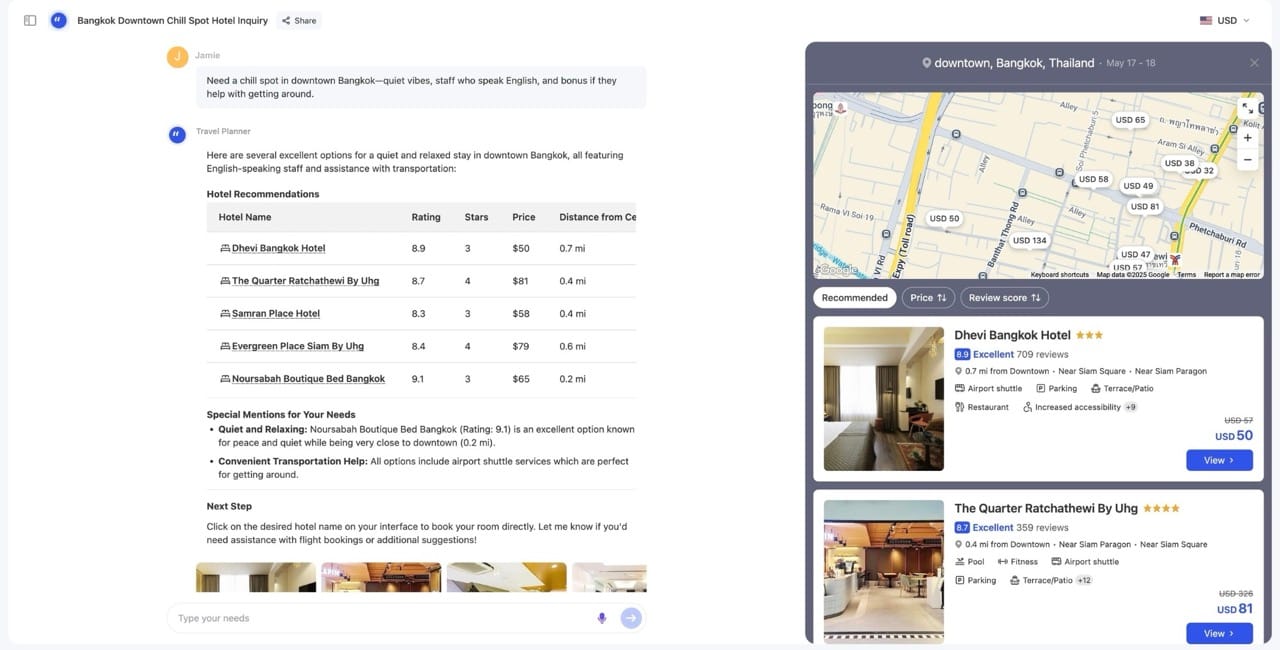
The tool responded with a handful of hotels that didn’t just meet her basic needs—they matched her travel style. The AI hotel finder even flagged reviews that mentioned friendly staff and late check-in flexibility. That made her final choice feel less like a gamble and more like a recommendation from someone who'd been there before.
More Than a Booking Engine
Platforms like iMean function differently from traditional search engines. Instead of guessing what a traveler wants based on a few search terms, the system engages through back-and-forth questioning, behaving more like a travel-savvy local than a filter-heavy website. The hotel finder AI draws on real-world traveler feedback, verified amenities, and contextual data like check-in hours, noise level, and access to public transport.

Take David and Meera, a retired couple from Australia planning their first trip to Southeast Asia. They used iMean to search for accommodations in Chiang Mai. Their priorities: a quiet guesthouse with step-free access, walking distance to a morning market, and staff who could recommend day trips. Within minutes, the platform suggested three options in the Old City, each with photos, relevant guest reviews, and clear location info. It even highlighted which hotels offered breakfast with Thai and Western options—a comfort Meera didn’t think to ask for, but was grateful to have.
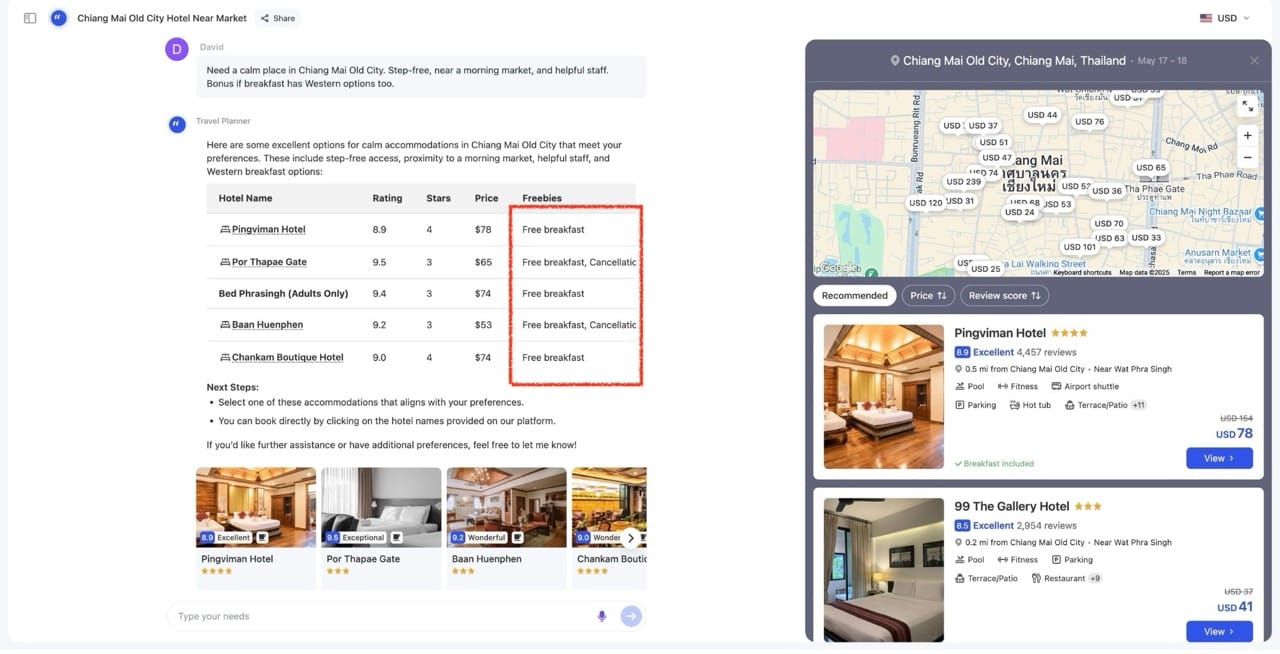
Flights That Work With Your Trip—Not Against It
For many first-timers, the stress doesn’t start at the hotel lobby—it starts at the boarding gate. Overnight flights, short layovers, and arrivals at off-hours can turn a hopeful arrival into a logistical headache.
That’s where iMean’s AI flight planner and AI to find cheap flights tools make a difference. Instead of sorting by lowest price alone, the ai flight finder helps users understand tradeoffs: Is that 4 a.m. arrival worth the $30 savings? Is a 7-hour layover really the best way to start a vacation?
A group of friends from Singapore used iMean to coordinate flights to Phuket for a reunion. With different work schedules and budgets, they needed flexibility. iMean helped balance cost and convenience, showing options that landed within the same hour, from different cities. The flight ticket AI tool then cross-referenced hotel check-in times, making sure no one was stranded waiting for a room.

Designing for Peace of Mind
Comfort means different things to different people. For some, it’s a hotel with thick blackout curtains and quiet mornings. For others, it’s knowing someone at reception speaks your language, or that there’s food nearby when jet lag hits.
iMean’s system is built to account for those variables. It doesn’t assume that everyone wants a high-rise hotel or that "close to the center" is good enough. Instead, it evaluates what the traveler actually wants: walkable access to BTS stations in Bangkok, proximity to night markets in Chiang Rai, or a lakeside view in Chiang Mai. And for first-time travelers, those small adjustments are the difference between feeling lost and feeling oriented.
Not Just for Luxury Seekers
While The White Lotus plays up the fantasy of international travel, most travelers aren’t booking five-star escapes. They’re trying to find comfort within a budget. A soft bed, a helpful check-in, a quiet location, and maybe, if they're lucky, a warm bowl of khao soi served within walking distance.
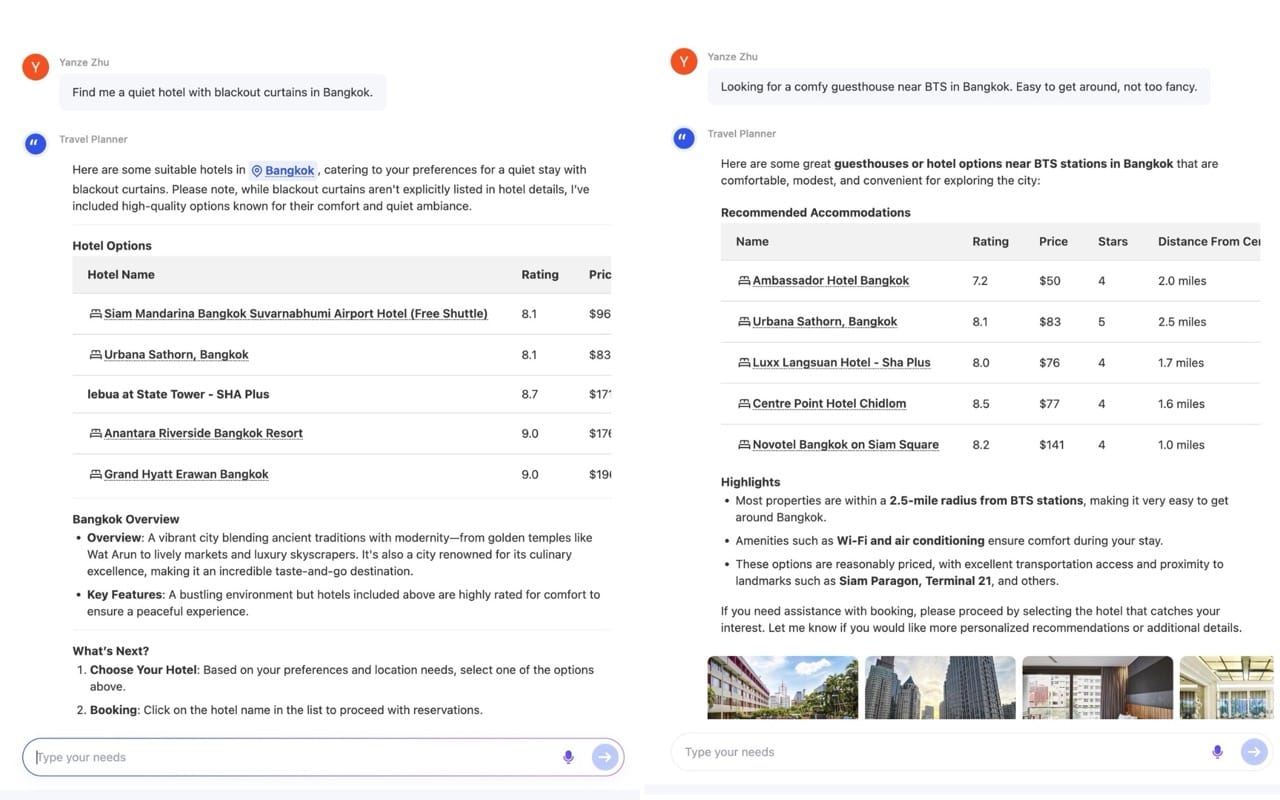
Using AI for travel planning isn’t about replacing instinct or discovery. It’s about removing the guesswork from the decisions that matter most: Where will I sleep? How will I get there? Will I feel okay when I arrive?
For new travelers especially, the value of tools like iMean isn't just in surfacing the lowest fares or nearest guesthouses. It’s in helping people land gently. It’s giving them a better start.
Let iMean AI match you with the right flights and hotels for a comfortable, stress-free beginning.

